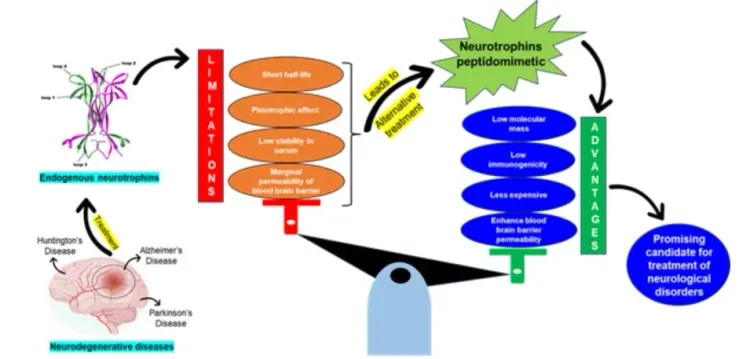Can Indian Scientists Revolutionize Treatment for Neurodegenerative Disorders?

Synopsis
A groundbreaking discovery by Indian scientists could pave the way for innovative treatments for neurodegenerative disorders. Their exploration of peptidomimetics showcases the potential to revolutionize therapies for conditions like Alzheimer’s and Parkinson’s, bringing hope to millions affected worldwide.
Key Takeaways
- Peptidomimetics show potential in treating neurodegenerative disorders.
- They mimic the structure of natural proteins for therapeutic benefits.
- Improved stability and bioavailability enhance treatment effectiveness.
- Targeted delivery may reduce side effects.
- Research is exploring repurposing for other diseases like cancer.
New Delhi, May 21 (NationPress) A group of researchers at the Institute of Advanced Study in Science and Technology (IASST), an autonomous body under the Department of Science and Technology (DST), has discovered drugs that show promise in treating neurodegenerative disorders—a significant global health issue.
Their findings, published in the Journal Drug Discovery Today, emphasize the potential of peptidomimetics in addressing neurodegenerative diseases like Alzheimer's and Parkinson's by enhancing neuronal growth and survival.
Peptidomimetic drugs—synthetic molecules that imitate the structure of natural proteins—can be repurposed to create effective therapeutic approaches for neurodegenerative diseases by fostering neuronal growth and longevity.
While neurotrophins, crucial proteins for neuronal health, have shown potential as treatments, their instability and rapid decay have limited their use.
The IASST researchers are investigating peptidomimetics, synthetic compounds designed to replicate neurotrophins, as a way to overcome these challenges.
“Neurotrophin peptidomimetics are crafted to target specific biological functions and can serve as valuable instruments in drug discovery, particularly when natural peptides face challenges like poor oral bioavailability or vulnerability to degradation,” stated the team led by Prof. Ashis K. Mukherjee.
“One of the notable benefits of peptidomimetics is their enhanced stability and bioavailability compared to natural neurotrophins. This allows for more effective delivery to the brain and prolonged therapeutic action,” they added.
Additionally, peptidomimetics can be tailored to be more selective for their target receptors, which may lower the risk of adverse effects.
The research delves into the signaling pathways related to neuronal growth and survival, the possible pharmacological targets of peptidomimetics, and their therapeutic roles in neurodegenerative diseases.
The team is also investigating the potential to repurpose existing peptidomimetic drugs for other conditions, such as cancer, and developing new drug prototypes based on neurotrophin mimetics.
As research continues, the team expressed optimism that peptidomimetics could emerge as a vital therapeutic option, offering new hope for managing and treating neurodegenerative disorders for future generations.









